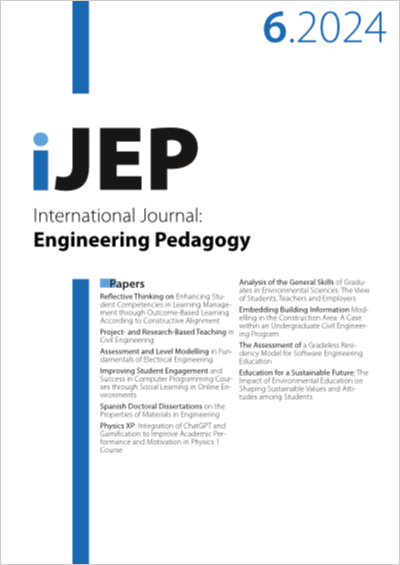Physics XP: Integration of ChatGPT and Gamification to Improve Academic Performance and Motivation in Physics 1 Course
DOI:
https://doi.org/10.3991/ijep.v14i6.47127Keywords:
artificial intelligence, ChatGPT, gamification, academic performance, motivation, physics 1Abstract
The understanding of the physics course (PC) at the university level faces many challenges, highlighting the gap in mathematical knowledge and conceptual phenomenological analysis that affect the assimilation of more advanced physical concepts. The synergistic integration of artificial intelligence (AI) and gamification into the teaching and learning process transforms this process into an engaging and collaborative experience, improving interaction and personalization of learning and incorporating game elements to increase student participation and motivation. The objective of this research was to measure the influence of the integration of ChatGPT, AI, and gamification on the academic results and motivation of students in the physics 1 course. A total of 188 students participated in this study: 98 students in the experimental group and 90 students in the control group. The grades obtained in the standardized evaluations were compared in both the partial exam and the final exam of the physics 1 course, and a Likert-type questionnaire was used for motivation. The results show a better academic performance (AP) of the students in the experimental group than the control group, which is statistically evidenced (p < 0.01). It also shows that students who developed the course using ChatGPT AI and gamification developed a more positive attitude towards interest, usefulness, self-efficacy, active participation, and personal satisfaction in the physics 1 course.
Downloads
Published
How to Cite
Issue
Section
License
Copyright (c) 2024 Saul Beltozar Clemente, Enrique Diaz Vega

This work is licensed under a Creative Commons Attribution 4.0 International License.



